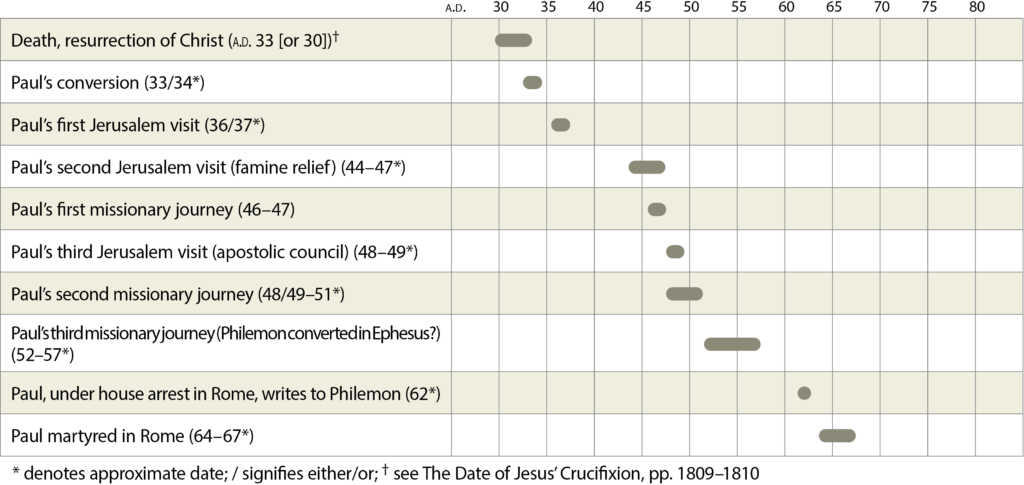Themes
The theme of Philemon is the power of the gospel to transform lives (“formerly he was useless” but “now he is indeed useful,” Philemon 11) and to impact human relationships (receive him “no longer as a bondservant [or slave] but more than a bondservant, as a beloved brother,” Philemon 16). On the Gk. word doulos, see the ESV Study Bible Preface, p. 21.
Background
Philemon was a wealthy Christian who lived in the city of Colossae, about 100 miles (161 km) inland from Ephesus. Apparently during Paul’s three-year ministry in Ephesus (A.D. 52–55), Philemon heard the gospel and was saved. He began serving the cause of Christ in the Colossian community, opening his home for a group of Christians to meet there regularly.
At some point, Onesimus, one of Philemon’s bondservants, fled to Rome. Possibly having stolen money (or property) from Philemon and now a fugitive, Onesimus was living in the most populated city of the Roman Empire, hoping to escape detection. In a rather remarkable set of circumstances—not recounted in the letter but certainly reflective of God’s sovereignty—Onesimus somehow came into contact with the apostle Paul and became a Christian. As he grew in Christ, he spent much time and effort helping Paul, who was severely constrained by his imprisonment.
As much as Paul would like to have retained the services of Onesimus, Paul knew that Onesimus’s fugitive status, severed relationship, and wrongdoing against his master needed to be addressed. Paul thus wrote this letter as an appeal to Philemon to appreciate the transformation that has occurred in Onesimus’s life and to receive him back not merely as a bondservant but as a “beloved brother” (Philemon 16).
It is difficult to know if Paul was seeking Onesimus’s full emancipation and freedom (see ESV Study Bible notes on Philemon 16 and 21). It is clear, however, that he was seeking a transformed relationship between bondservant and master—a new relationship that would defy all of the ingrained status distinctions of the surrounding Greek and Roman culture. There is no doubt that it would have been difficult for this kind of servitude to survive in the atmosphere of love created by the letter, and in fact the elements of Paul’s appeal found in this letter helped lay the foundation for the abolition of such servitude.
Taken from the ESV® Study Bible (The Holy Bible, English Standard Version®), copyright ©2008 by Crossway, a publishing ministry of Good News Publishers. Used by permission. All rights reserved. For more information on how to cite this material, see permissions information here.








